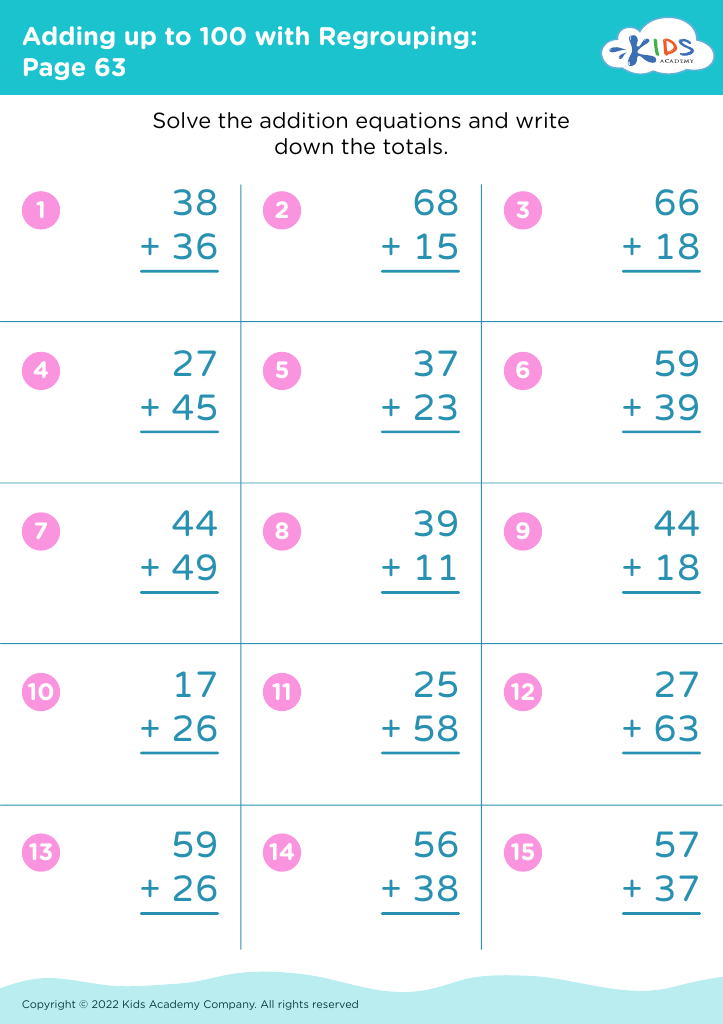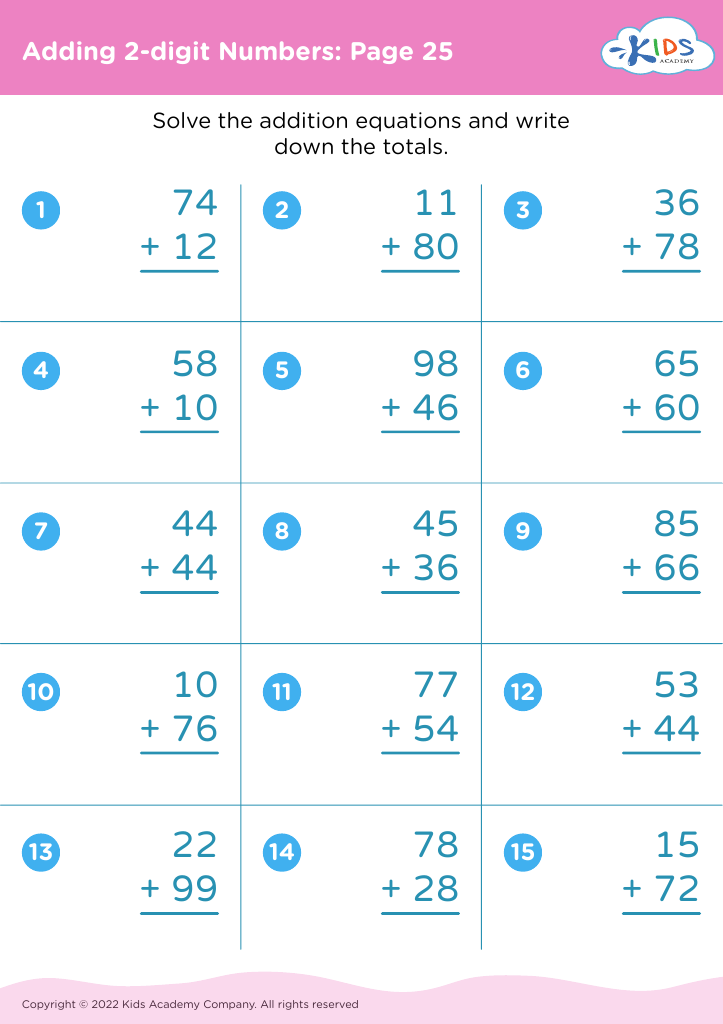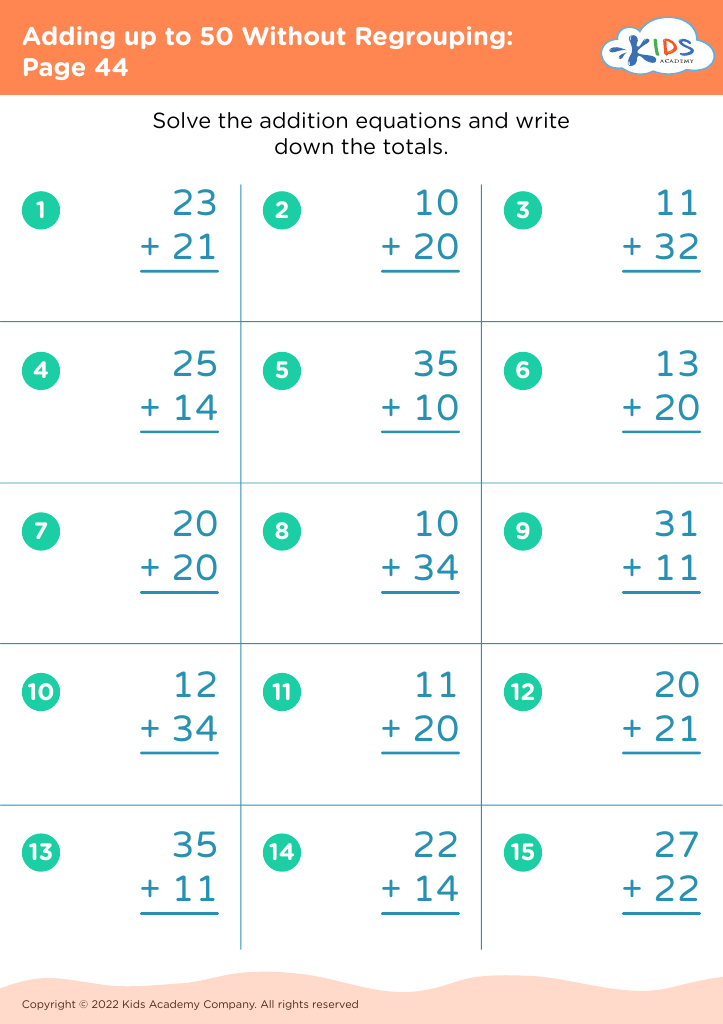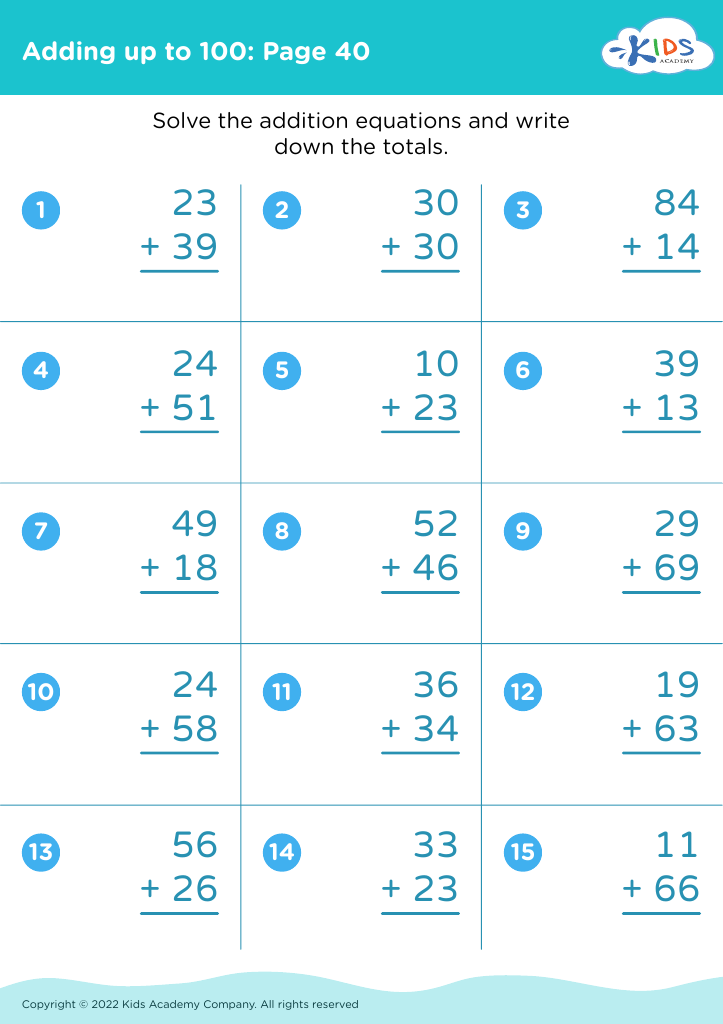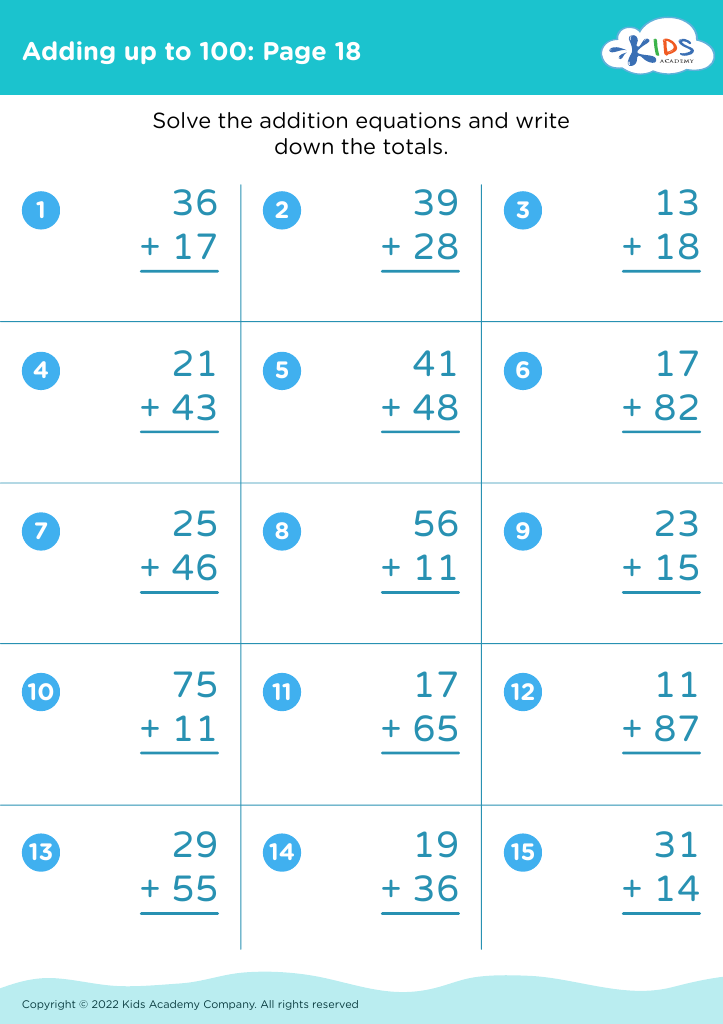Enhance number recognition Addition Worksheets for Ages 6-8
17 filtered results
-
From - To
Boost your child’s math skills with our "Enhance Number Recognition Addition Worksheets" designed for ages 6-8. These expertly crafted worksheets from Kids Academy provide engaging and fun activities that help young learners improve their number recognition and addition abilities. Tailored to align with early grade curriculums, our worksheets focus on fundamental math concepts with colorful visuals and interactive exercises. Perfect for both classroom and home use, these printables make learning math enjoyable and effective, ensuring kids develop confidence in their abilities while mastering the basics. Download now and watch your child's arithmetic skills soar!
Enhancing number recognition and addition skills for children ages 6-8 is crucial for their early cognitive development and success in later academic pursuits. At this pivotal stage, children transition from pre-numerical understanding to grasping foundational math concepts, setting the groundwork for more complex mathematical problem-solving. First, strong number recognition helps children understand and use numbers confidently in a variety of contexts, from counting objects to recognizing numerical patterns. This proficiency is necessary for daily life and for excelling in broader mathematical areas.
Moreover, developing addition skills at this age aids in fostering logical thinking and the ability to solve problems methodically. These skills are not confined to mathematics alone but are transferable to other academic subjects and real-world situations. For instance, children with a solid grasp of addition will more easily learn subtraction, multiplication, and division, facilitating a smoother academic journey.
Additionally, mastering these skills builds self-confidence and promotes a positive attitude towards learning. Children who feel competent in their math abilities are more likely to engage actively in the classroom, participate in discussions, and tackle challenges with confidence. Therefore, parents and teachers should focus on making learning engaging and encouraging, thereby laying a robust foundation for the child's educational and personal growth.



